Khoury News
Meet the new Khoury College faculty for 2023–24
Khoury College welcomed a record number of faculty hires this year, from AI ethics stalwarts to data privacy specialists to instructional inclusivity advocates and everyone in between. As they begin […]
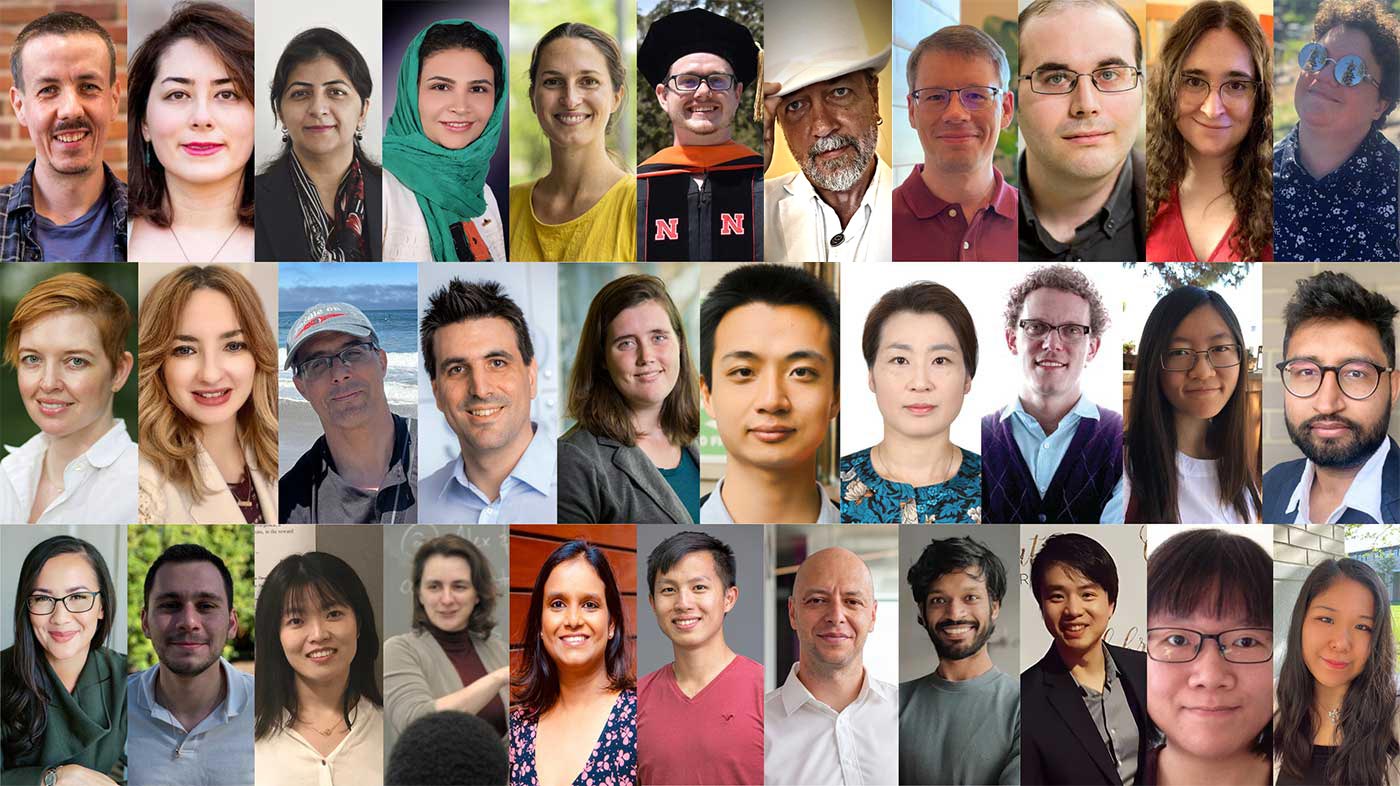
Khoury College welcomed a record number of faculty hires this year, from AI ethics stalwarts to data privacy specialists to instructional inclusivity advocates and everyone in between. As they begin their research and teaching across seven Northeastern campuses, let’s take a moment to meet them.
Click a faculty member’s name to jump to their section, or simply read on:
Click a faculty member’s name to jump to their section, or simply read on:
Ildar Akhmetov, associate teaching professor
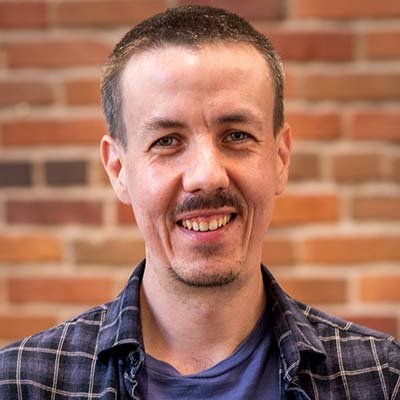
Starting fall 2023 in Vancouver
Throughout his career, Ildar Akhmetov has worn three hats. As a professor in Russia and Canada, he designed and taught courses that elevated hands-on, experiential projects. As an entrepreneur, he founded and managed several businesses, including those advancing innovative digital learning models. And as a software developer, he oversaw the development, integration, maintenance, and security of IT and computer systems. Now, as he shifts his focus to the Align program, Akhmetov wants to leverage his array of experiences to launch students of all backgrounds into industry.
Malihe Alikhani, assistant professor
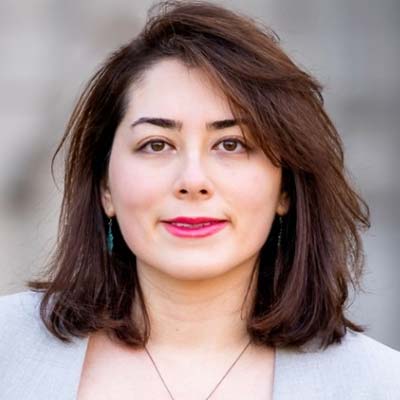
Starting fall 2023 in Boston
Malihe Alikhani believes in the ability of language technologies and AI learning models to bolster critical education, health, and social justice efforts, but she also studies the ways in which those models become biased. Her vision is to ground these systems in fairness, inclusivity, and collaboration, and to leverage them for the benefit of long-underserved communities. Alikhani joins Khoury College after three years teaching at the University of Pittsburgh, where she earned a handful of AI-based “best paper” honors from top natural language processing and machine learning conferences, as well as grants from DARPA, the NIH, Google, and Amazon. She is looking forward to teaching AI ethics courses and collaborating within Northeastern’s cross-college institutes.
Tehmina Amjad, associate teaching professor
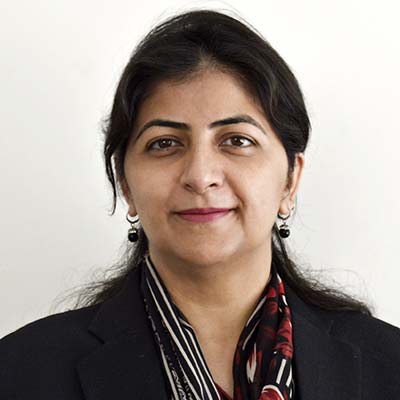
Starting fall 2023 in Silicon Valley
After 16 years teaching information retrieval, data mining, databases, machine learning, and more at one of Pakistan’s most prestigious universities, Tehmina Amjad joins Khoury College with a drive to advance the intellectual development of her students. In her courses on discrete structures and information retrieval, she aims to impart foundational concepts that will connect Align students to more advanced topics. In her own research, Amjad has delved into citation analysis, topic modeling, knowledge diffusion, health care analytics, and machine learning, and has published her work in a slew of high-impact-factor journals.
Akram Bayat, assistant teaching professor
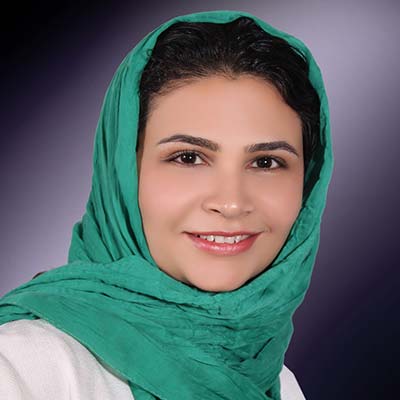
Starting fall 2023 in Oakland
Akram Bayat earned her Ph.D. at UMass Boston, where she conducted experimental studies to model human physical and behavioral characteristics. In the years since, she has held a smattering of data science positions, often at the intersection of AI and health care. As a postdoctoral associate at the MIT Media Lab, Bayat forged novel intersections between engineering, medical imaging, machine learning, and medicine to further patient-centered research. And as a data science fellow at a joint program between the University of California, San Francisco, UC Berkeley, and Johnson & Johnson, she designed an AI-based platform for primary care physicians to provide proactive care for patients.
Elettra Bietti, assistant professor
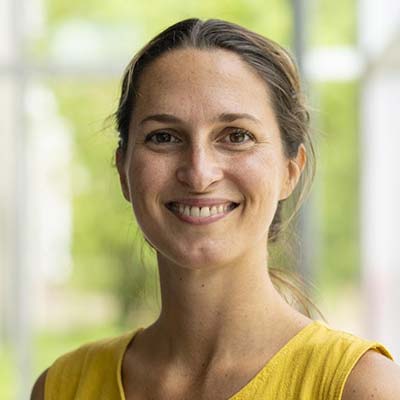
Started summer 2023 in Boston, jointly appointed (75% School of Law)
Elettra Bietti first delved into technology as an antitrust and intellectual property lawyer in Brussels and London. As she gravitated toward questions of data and political economy, she became fascinated by the interactions between technological innovators and public policymakers, and by the way large tech platforms shape users’ online privacy and consumption choices. Now, after a slew of published papers in computing journals and law reviews, plus a year researching and teaching at the NYU School of Law and Cornell Tech, Bietti joins Northeastern, where she’ll teach on the regulation of technology in the digital economy. Outside of Northeastern, she is affiliated with Harvard’s Berkman Klein Center for Internet & Society, as well as Yale’s Information Society Project.
Ryan Bockmon, assistant teaching professor
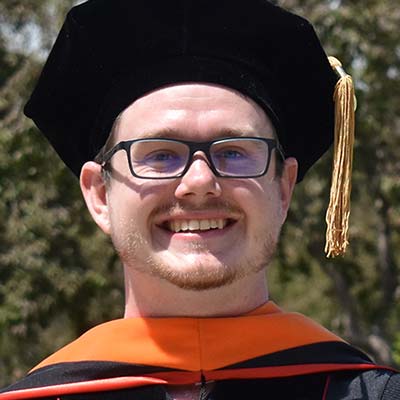
Starting fall 2023 at the Roux Institute in Portland, Maine
Ryan Bockmon’s teaching and research is fueled by a desire to improve the areas he found lacking in his own experience as a computer science student. After co-creating and piloting Montana’s first high school data science course as an undergrad at Montana State University, he earned his Ph.D. in computer science from the University of Nebraska–Lincoln in 2022. Now, Bockmon joins Khoury College intent on working with students from all walks of life to better their careers. When he’s not teaching, he researches computer science education best practices, spatial skills, and VR and AR learning experiences.
Juancho Buchanan, professor of the practice

Started summer 2023 in Vancouver
Juancho Buchanan’s career contains a multitude of eventful stops. After researching non-photorealistic rendering at the University of Alberta in the 1990s, he joined Electronic Arts Canada, where he founded the internal education program known as Electronic Arts University. After an Australia-based research position at Carnegie Mellon University where he prototyped interactive worlds, he returned to Vancouver, where he worked a variety of software engineering roles, including at Amazon Web Services, Staffbase, and Hothead Games. Now at Northeastern, he’s excited to teach students to use intriguing new tools.
Richard Cobbe, assistant teaching professor
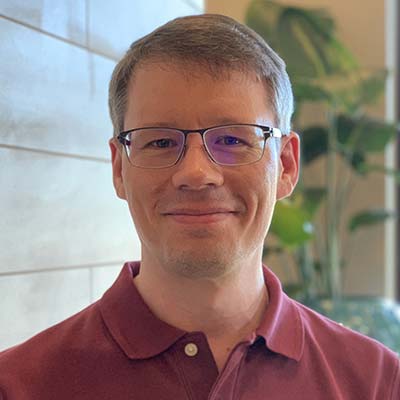
Starting fall 2023 in Seattle
Richard Cobbe earned both his master’s and doctoral degrees from Khoury College, where he worked with Matthias Felleisen on the design and implementation of object-oriented languages. Then, after 15 years in industrial software development, including five years working on internal projects for Microsoft, Cobbe rejoined the college as a part-time lecturer in Seattle. Now he’s making the jump to full-time professor, doing so with teaching experience in databases and introductory programming courses, plus research experience in programming language design and analysis.
Michael Correll, associate research professor
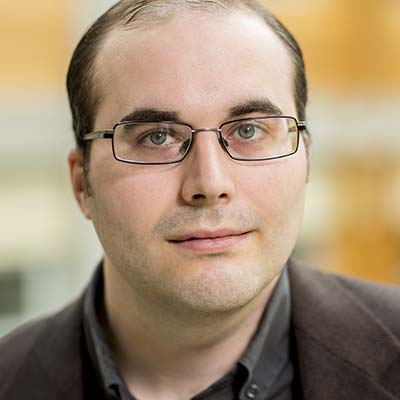
Starting fall 2023 at the Roux Institute in Portland, Maine
In his information visualization research, Michael Correll aims to understand how to ethically, accurately, and responsibly communicate data. After writing his Ph.D. dissertation on the use of visual perception to improve statistical graphics, then spending his postdoctoral days at the University of Washington’s Interactive Data Lab, he joined Tableau as a leading research scientist. There, he focused on the visual communication of statistical models, visualization and data ethics, epistemology in data science, and designs for auditing and verifying visual analytics. His recent work has zeroed in on deceptive and dangerous practices that can result in unethical or misleading uses of data.
Michael Ann DeVito, assistant professor
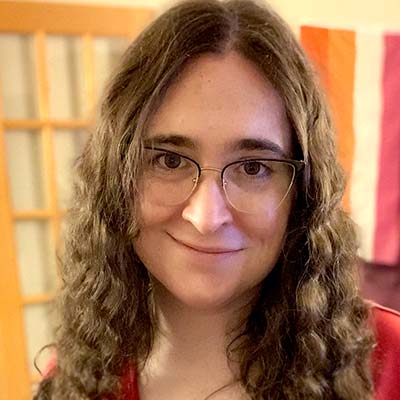
Starting fall 2023 in Boston, jointly appointed (25% College of Arts, Media and Design)
Michael Ann DeVito is a member-researcher who grounds her theory-based, qualitative research in her experience as part of the communities she studies. This approach to AI, machine learning, and human–computer interaction has encompassed a litany of sociotechnical topics, including adaptive self-defense for transfeminine content creators and educators, the impact of TikTok’s algorithmic content curation and moderation on mental health content and communities, and safe dating and connection apps for trans or neurodivergent sapphics. For DeVito, it’s all about bringing human and community elements front and center, and she’s earned a handful of “best paper” and diversity awards at CSCW and CHI as a result.
Brianna Dym, assistant teaching professor
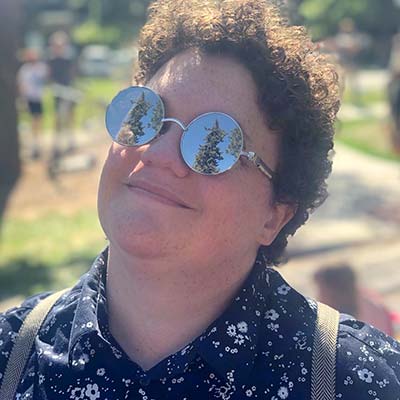
Starting fall 2023 at the Roux Institute in Portland, Maine
Fittingly enough for someone who came to computer science through nontraditional means — her bachelor’s and master’s studies were in English — and who used the internet to foster a sense of queer community she otherwise lacked, Brianna Dym focuses her teaching and research on the inclusion of groups underrepresented in computing. She did so while teaching introductory computing classes at the University of Maine, where she reimagined core curricula to appeal to a wider range of students. Now Dym sees a similar opportunity at the Roux Institute, where she hopes to empower Align students to leverage new and emerging technologies for their personal benefit and their communities’ gain.
Laura Edelson, assistant professor
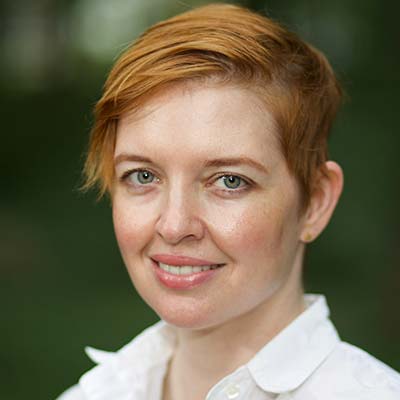
Starting fall 2023 in Boston
As the former chief technologist of the US Department of Justice Antitrust Division, Laura Edelson understands just how crucial cybersecurity is in today’s world. She feels that after climate change, the spread of misinformation and disinformation is the most pressing problem of our time, and that engineers and scientists must center ethics, impact, and public policy participation in their work. To that end, her research analyzes the spread of harmful content on social media platforms, the development of methods to detect such content, and the ways in which platforms can be made safer and more transparent for users. She is excited to contribute to Khoury College’s ongoing research efforts in social cybersecurity, and to collaborate with Northeastern’s law and social science scholars.
Mai ElSherief, assistant professor
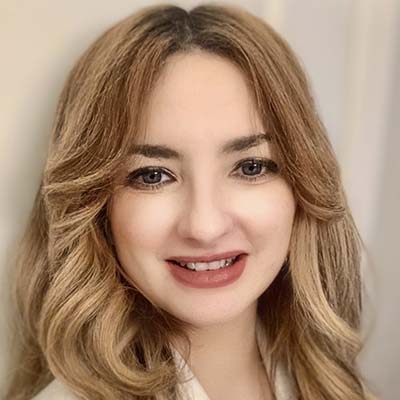
Starting fall 2023 in Boston
Mai ElSherief wields machine learning and natural language processing to examine human behavior, particularly online abuse, biases, public health intelligence, and community well-being. She is driven to minimize online harm and make online spaces safer for users, and she has worked on “computing for social good” projects dealing with hate speech, gun violence, and opioid use, among others. Before joining Khoury College, ElSherief was an assistant professor at the University of California San Diego, an EECS Rising Stars participant at UC Berkeley, and a CS Outstanding Graduate Student at UC Santa Barbara.
Miguel Fuentes-Cabrera, associate teaching professor
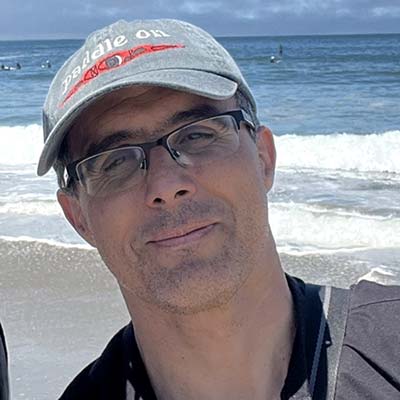
Starting fall 2023 in Oakland
Miguel Fuentes-Cabrera situates his research at the intersection between experiment and simulation, using deep learning to improve simulation models and pave the road toward autonomous experiments. In doing so, he strives to work in areas with clear societal impact, namely nanomaterials, microbial populations, proteinaceous structures, and mosquito-borne parasitic diseases. During his 21 years as a researcher at the Oak Ridge National Laboratory in Tennessee, Fuentes-Cabrera mentored more than 30 students in their research, and he hopes to continue both his mentorship and research at Northeastern’s Mills College.
Benjamin Gyori, associate professor
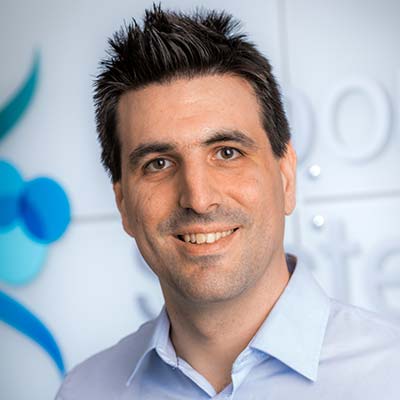
Started summer 2023 in Boston, jointly appointed (25% College of Engineering)
Benjamin Gyori wants to leverage computation to solve medicine’s fundamental problems. In particular, his research group uses machine learning, formal verification, text mining, knowledge assembly, and causal analysis to automate scientific modeling, understand human biology, and pave the way for advances in health care. With a skill straddling multiple fields, it’s no surprise that Gyori’s career has been thoroughly interdisciplinary; he led the Machine-Assisted Modeling and Analysis Group at Harvard Medical School, earned his doctorate under an interdisciplinary scholarship at the National University of Singapore, and has advocated for open-source software development in the computational biology community. In addition, he recently received two DARPA awards and has led a series of federally funded projects on machine-assisted complex systems modeling.
Ariel Hamlin, assistant teaching professor
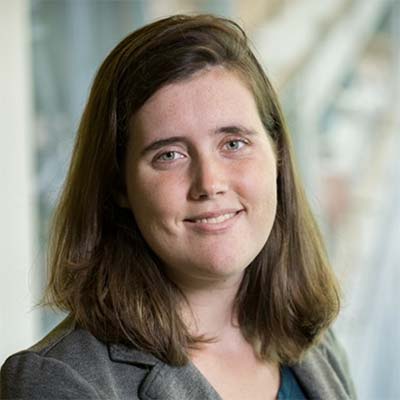
Starting fall 2023 in Boston
For Ariel Hamlin, a Khoury College professorship is a full circle of sorts, as she returns to teach at the college where she earned her Ph.D. in cryptography. Her research focuses on securing and using data in outsourced environments while preserving functionality — for instance, examining how a server can host a private database while supporting queries upon it. Apart from her doctoral studies at Khoury College, Hamlin worked at MIT Lincoln Laboratory, where she pursued advanced cryptography in a national security context. As she becomes a professor, she wants to pay forward the mentorship that was so valuable in her studies, and to help her students realize that computer scientists come in many forms.
Zhengzhong Jin, assistant professor
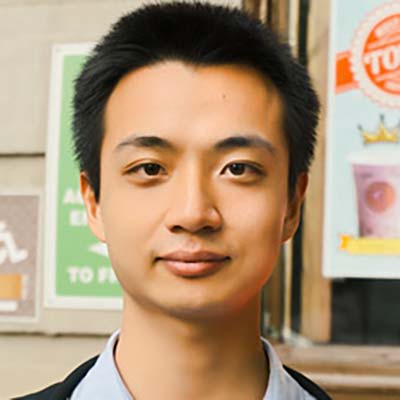
Starting fall 2024 in Boston
The more Zhengzhong Jin studied cryptography, and the more he saw blockchain and cryptocurrency technologies coming into prominence, the more enamored he became. Now, he’s leveraging cryptography to develop a proof system, one that would allow users to delegate heavy computation to an untrusted server while still ensuring that the computation is performed properly. By securing and speeding up this process, Jin believes he can better enable some of the technologies that first attracted him to the field. He is currently a postdoctoral associate at MIT and will join Khoury College in the fall of 2024.
Youna Jung, associate teaching professor
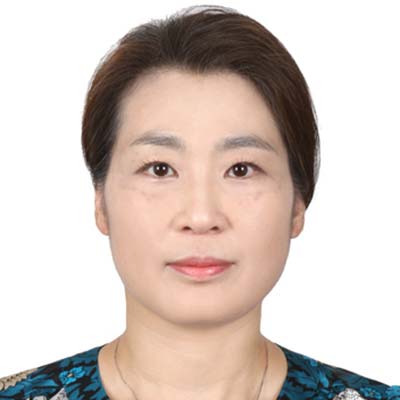
Started summer 2023 in Arlington
For nearly a decade, Youna Jung has made her home at the Virginia Military Institute as a professor, chair of the Women in STEM group, and most recently, as director of the school’s joint master’s in computing program with Virginia Tech. In that time, she has published more than 45 papers, mainly around artificial intelligence, the Internet of Things, collaborative computing, and cybersecurity. Now, as she prepares to teach courses on databases and security and privacy at Khoury College, Jung is excited to contribute to a new computer science master’s program at the Arlington campus.
Chris Le Dantec, professor of the practice and director of digital civics initiatives
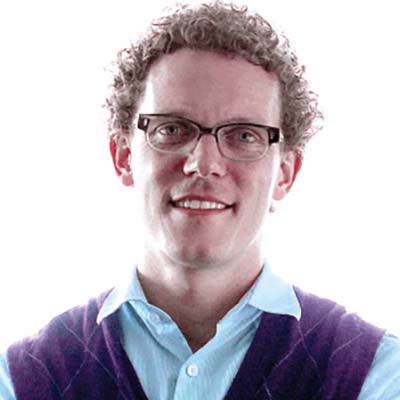
Starting fall 2023 in Boston, jointly appointed (50% College of Arts, Media and Design)
Chris Le Dantec researches digital civics, working with community partners to explore new forms of civic participation through computing and data interfaces. His work blends approaches from human-computer interaction, participatory design, digital democracy, and smart cities. He regularly publishes in the ACM conferences CHI, CSCW, and DIS and is the author of Designing Publics, in which he explores how alternative visions of design can unite communities and bolster action on social issues. Chris is excited to join Khoury College for this year to help build out research initiatives and partnerships across campus for work in digital civics.
Tianshi Li, assistant professor
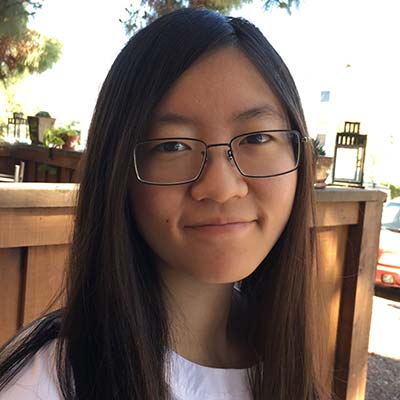
Starting fall 2024 in Boston
During her recently-concluded doctoral studies at Carnegie Mellon University, Tianshi Li focused on human–computer interaction, security and privacy, and software engineering. Specifically, she developed IDE plugins to aid app developers in adding privacy annotations to their source code, allowing them to incorporate native privacy support into the apps. In her current role at Google, Li is helping to support companies in their privacy compliance, and later this year, she’ll build on her thesis research and explore new topics as a postdoc at the University of California, Berkeley.
Joydeep Mitra, assistant teaching professor
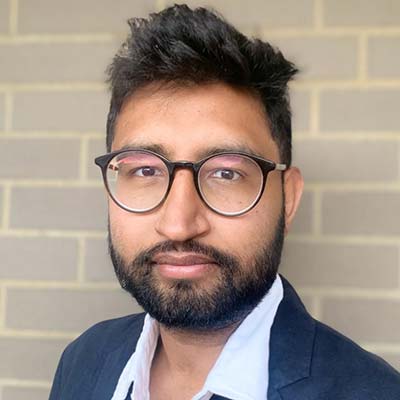
Starting fall 2023 in Boston
It’s not every day that you receive a reward from Google for pinpointing vulnerabilities in the Android platform, but Joydeep Mitra has received two. The credentials are well-earned for a researcher who saw mobile app technology flourish during his undergraduate years, and has felt driven to understand and secure those apps ever since. Mitra’s teaching in systems, security, and software engineering at Stony Brook University reflects those same convictions, and as he joins Khoury College, he’s excited to train the next generation of computer scientists, and to develop pedagogical methods that will improve diversity in the field.
Lace Padilla, assistant professor
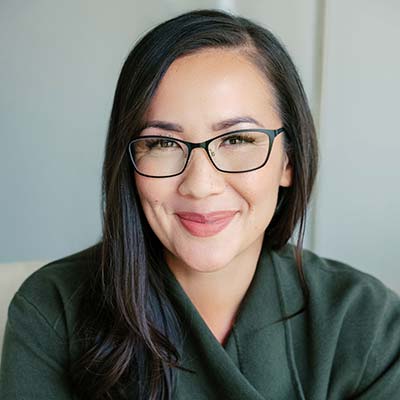
Started summer 2023 in Boston and Oakland, jointly appointed (25% College of Science)
Lace Padilla wants to design effective, helpful visualizations, especially for high-risk events like natural disasters. But she knows all too well that human brains don’t always process uncertainty well, so her research strives to bridge that gap without compromising digestibility. Those efforts have recently garnered her an NSF CAREER grant, and as she joins Khoury College, she is ecstatic to contribute to what she calls “the most vibrant hub for data visualization research in the world.” Apart from her research, Padilla advocates for minority groups in STEM, serves on the IEEE VIS Inclusivity Committee, and has received several grants and awards for her diversity work.
READ: Clarity or uncertainty? In her visualizations, NSF CAREER awardee Lace Padilla balances both
Nadim Saad, assistant teaching professor
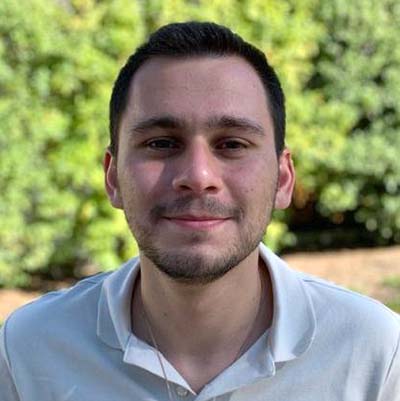
Starting fall 2023 in Silicon Valley
Nadim Saad recently completed his Ph.D. in computational mathematics at Stanford University, where he developed traffic flow models based on partial differential equations (PDEs). During that time, he also worked with Amazon Web Services, where he developed deep learning models to solve PDEs. Now, with a drive to teach foundational concepts that students can build their specializations on, Saad joins Khoury College, where he’ll teach a variety of core computer and data science topics.
Weiyan Shi, assistant professor
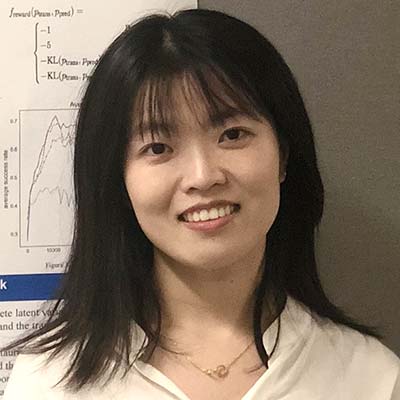
Starting fall 2024 in Boston, jointly appointed (75% College of Engineering)
Weiyan Shi’s research focuses on natural language processing, namely social influence dialogue systems and privacy-preserving NLP applications. At Meta AI Research, she worked to develop the negotiation dialogue for Cicero, the AI that Meta taught to play the board game Diplomacy. She also spent two years as a data scientist in the Bay Area, where she developed customer service chatbots. And she has published at top-tier conferences and journals including Science, ACL, EMNLP, NAACL, and AAAI, and was recognized as a Rising Star in Machine Learning. Now, after spending the next year as a postdoc at Stanford, Shi will join Northeastern, where she hopes to further her AI, large language model, human–computer interaction, and security research.
Katherine Socha, associate teaching professor
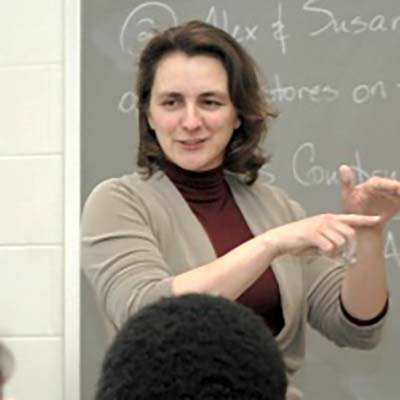
Started summer 2023 in Arlington
Katherine Socha’s teaching career has taken her from the Park School of Baltimore to a tenured mathematics professorship at St. Mary’s College of Maryland, and now to Khoury College in Arlington. Her interests include expository mathematics, mathematical modeling of surface water waves, graph theory, and discrete structures, with an eye turned toward modern category theory for the future. She has received the Lester R. Ford Award for an American Mathematical Monthly article of expository excellence, the Henry L. Alder Award for distinguished early-career university teaching, and an AAAS Science and Technology Policy Fellowship.
Shanu Sushmita, assistant teaching professor
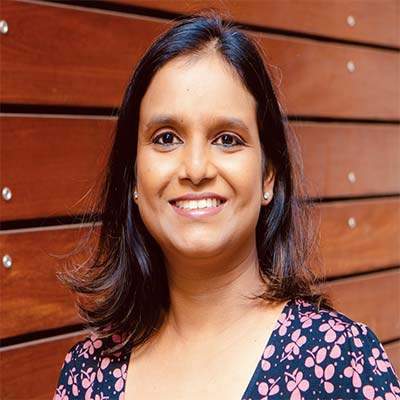
Starting fall 2023 in Seattle
After two years with Northeastern’s College of Professional Studies, Shanu Sushmita is jumping to Khoury College, and doing so with more than 15 years of research and teaching experience in machine learning, information retrieval, and data science under her belt. She enjoys using data to tailor products and solutions to improve user experiences and has worked on search engines, digital libraries, and social media tools, among others. Outside of academia, Sushmita served as head of data science for Seattle-based KenSci, which aimed to provide machine-learning-based health care solutions.
Zhi Tan, assistant professor
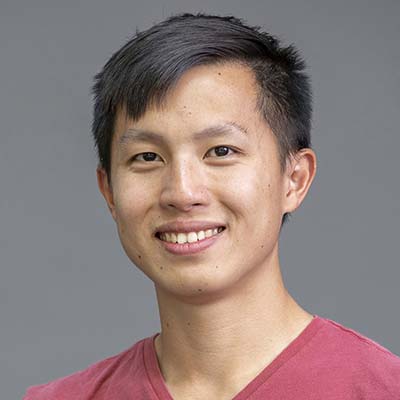
Starting fall 2023 in Boston
From his doctoral days at Carnegie Mellon University to his postdoctoral fellowship at Georgia Tech, Zhi Tan has immersed himself in human–robot interaction. He wants to design algorithms and systems that enable robots to work together in new environments, collaborate with the people around them, and leverage nearby Internet of Things and digital devices to operate more efficiently. Tan has published his work at numerous top-tier ACM and IEEE conferences, and enjoys the cycle of developing, evaluating, and improving new systems.
Iraklis Tsekourakis, associate teaching professor
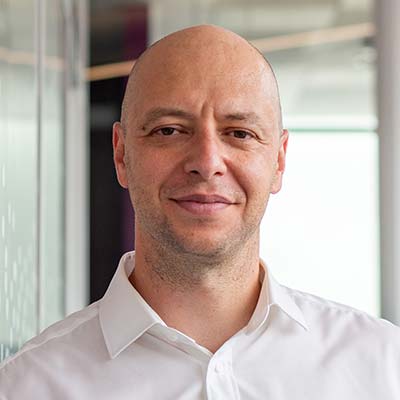
Starting fall 2023 in Boston
When Iraklis Tsekourakis began teaching at Stevens Institute of Technology, he did so with a drive to make the computing field more diverse and inclusive, and to improve learning outcomes at all levels. So he designed, proposed, and launched a new computer science master’s program for students without a computing background and contributed to the creation of a new master’s program in machine learning. When he joined Brandeis University as a professor and director of graduate studies, he continued to develop curricula with a focus on his mission. Outside the classroom, Tsekourakis researches ways to improve the accuracy of 3D reconstruction using multiple-view videos as inputs — enamored, he says, by its applications to mixed reality, medicine, and robotics.
Rajagopal Venkatesaramani, assistant teaching professor
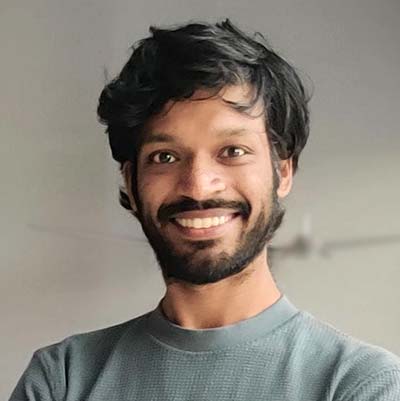
Starting fall 2023 in Boston
As genomic data sharing becomes more prevalent, Raj Venkatesaramani only becomes more convinced of the need for privacy safeguards in the field. That’s why he develops defenses against membership inference attacks on genomic datasets, with an emphasis on statistical inference attacks and the correlation between DNA and facial images. In the classroom, Venkatesaramani believes in a learner-centric environment, innovative course design, and coding instruction for every student regardless of their background or discipline.
Chieh Wu, assistant teaching professor
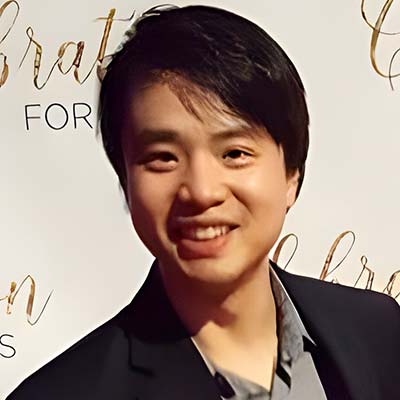
Starting fall 2023 in Boston
After earning his doctorate from Northeastern’s College of Engineering in 2020, then transitioning to a postdoctoral position there, Chieh Wu joins Khoury College, where he’ll teach machine learning and data science courses. He believes in building a solid foundation for students in these subjects, fanning their interests and propelling them toward graduate work. In his research, Wu models neural networks through kernels, with the goal of discovering a unifying mathematical theory for these networks. He also studies gerontology and machine learning, namely the biomarkers that help us understand human aging.
Xiao Yang, assistant professor
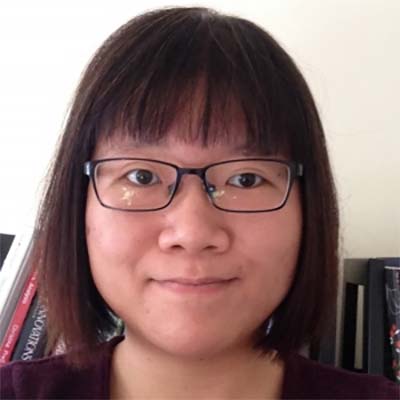
Starting fall 2023 in Boston, jointly appointed (75% Bouvé College of Health Sciences)
By combining her backgrounds in computer science, statistics, and quantitative psychology, Xiao Yang has worked to develop innovative, personalized mental health interventions for depression and anxiety. She comes to Northeastern after serving as research lead at Mindstrong Health, a telehealth company that leverages passive sensing data to provide mental health care and just-in-time intervention. She has published in psychology journals and human–computer interaction (HCI) venues, including Multivariate Behavioral Research, Developmental Psychology, Complexity, and ACM’s HCI publications.
Xiaoyi Yang, assistant teaching professor
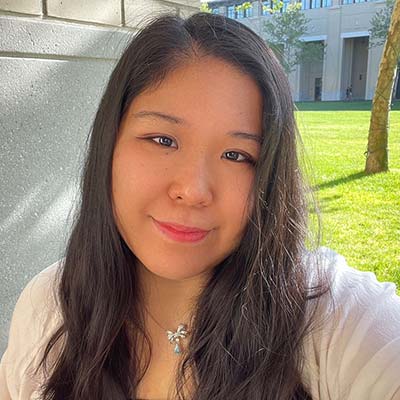
Started summer 2023 in Boston
After earning her Ph.D. in statistics from Carnegie Mellon University, Xiaoyi Yang jumped to Creighton University, where she taught undergraduate data science courses, developed student research projects, and handled other teaching and research duties. Now at Khoury College, Yang will teach machine learning courses that lie at the intersection between core CS and her statistics background. She is also interested in applying social science to statistics, sociology, finance, education, and sports.
The Khoury Network: Be in the know
Subscribe now to our monthly newsletter for the latest stories and achievements of our students and faculty